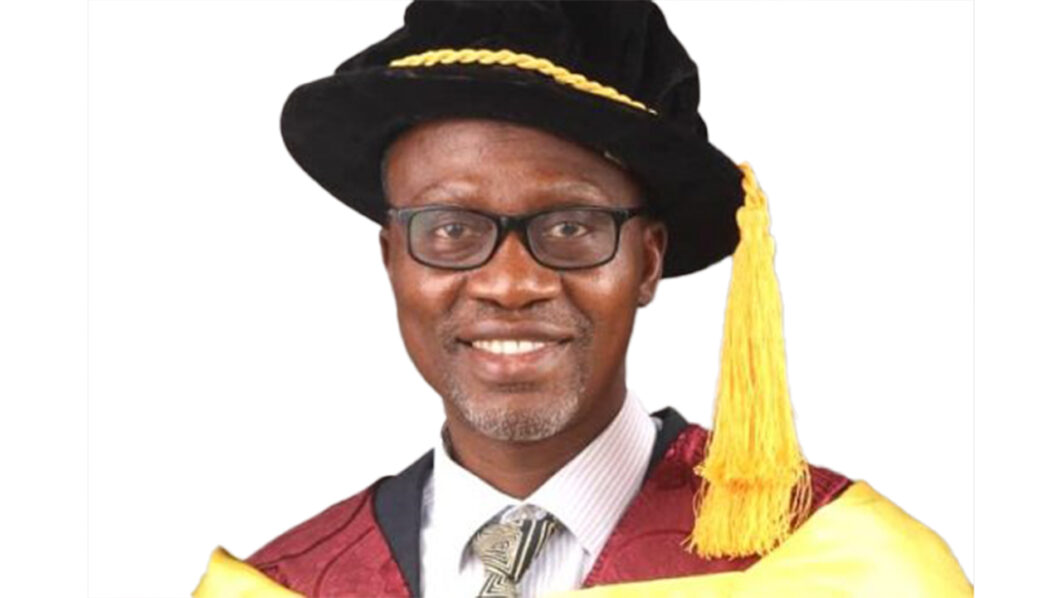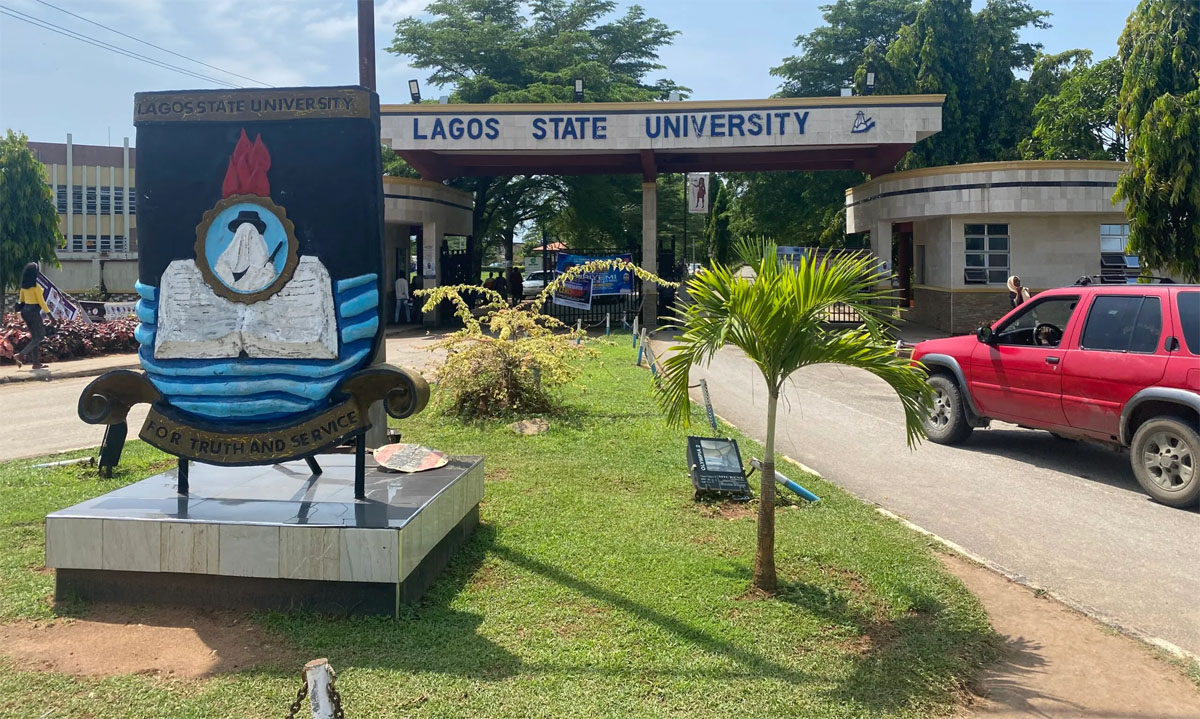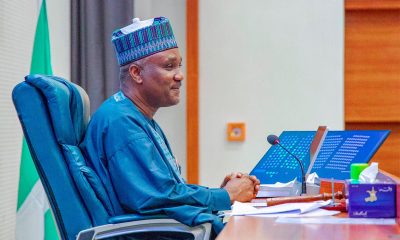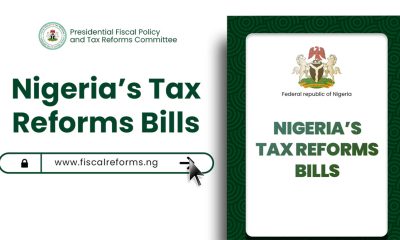Education
ASUU dismisses FG’s N52.5bn, says strike likely soon

The Academic Staff Union of Universities has said the N30bn Revitalisation Fund and N22.5bn Earned Academic Allowance totalling N52.5bn released by the Federal Government is not enough to deal with the challenges facing the university system.
The ASUU President, Prof Emmanuel Osodeke, noted in an interview with Sunday PUNCH that there was a possibility that the union would still go on strike, unless the government addressed its demands, including the 2009 agreement.
The Federal Government had said it paid lecturers N30bn Revitalisation Fund and N22.5bn Earned Academic Allowance. It noted that it had made some progress in implementing the Memorandum of Understanding the government reached with the union.
Osodeke described the fund released by the government as a token payment, adding that it was not enough for lecturers to change their minds on the suspended strike.
He, therefore, asked the Federal Government to address the issues concerning the Integrated Payroll and Personnel Information System, which the union rejected and asked to be replaced with the University Transparency, Accountability Solution. He also said renegotiation and resuscitation of universities had not been addressed.
The union suspended its nine months strike on December 24, 2020 after its National Executive Council met over the understanding the union had with the Federal Government. The union commenced the strike over the non-payment of salaries of its members who failed to enroll into the Integrated Payroll and Personnel information system and some other agreements the union had with the government.
READ ALSO:
- Siblings drown in Kwara river on New Year’s eve
- Mbaka: My persecutors planned to drug, undress, film me among prostitutes
- Police kill 38 bandits, lose 5 officers in Katsina – Arrest 152 robbers ,999 suspects
The union gave deadlines and threatened that it would not hesitate to withdraw its services if the government reneged on its promises. The then President of ASUU, Prof Biodun Ogunyemi, said, “What we have done is to give the government the benefit of doubt and that is why we have added the caveat. Should the government renege, our members are not tired of withdrawing their services.”
The suspended strike began in March over the non-payment of salaries of ASUU members who failed to enrol into the Federal Government’s IPPIS, a payroll software mandated for all public officials and some unmet agreements between ASUU and successive administrations. The union embarked on different strike actions since the agreement was signed in 2009.
Speaking on the N52.5bn fund, Osodeke stated, “There is an agreement and we want them to implement the agreement. The issue is not about money. There is the issue of renegotiation, there is the issue of resuscitation of the universities, and there is the issue of UTAS. So, you don’t just come and throw a little money and think the challenge has been resolved.
“This is what our political class is doing. They believe that once they throw a little money, everybody will run back. That is the problem. So, it is not about the token they have given. There are more fundamental issues.”
Osodeke stated that the planned strike in the new year was a possibility, adding that the union decided to shelve the strike earlier because the Nigeria Inter-Religious Council intervened and promised to prevail on the Federal Government to implement the agreement.
He added, “Our going on strike is a possibility. The only reason we relaxed is because a group, Nigeria Inter-Religious Council, intervened. We respect the group so much. The group told us they would intervene and they would ensure that the government implements our agreement. That is why we agreed to the benefit of the Federal Government.
“So, we decided we will give the Federal Government till the end of this year (2021) and see what it will do. Other groups also intervened. That explained why we relaxed going on strike, so that they will not say ASUU likes going on strike.
“The Federal Government should do the needful by embracing the agreement to prevent ASUU from going on strike. Nigeria as a whole will suffer the brunt of ASUU going on strike.”
But the Minister of State for Education, Chukwuemeka Nwajiuba, said there was no justification for another strike by ASUU, adding that the Federal Government had addressed the issues raised by the union.
READ ALSO:
- Flight cancellations top 2,500 in another chaotic day for air travel
- Siblings drown in Kwara river on New Year’s eve
- Mbaka: My persecutors planned to drug, undress, film me among prostitutes
He, however, explained that it might not be possible to stop any group that had made up its mind to embark on strike.
In an interview with one of our correspondents, he said, “I have always said my position is that even if you slap me, I will tell you that there is no justification for a strike. It doesn’t matter; if you like, you can kill a goat for the person, if he wants to go on strike, he would go. If you don’t kill a goat for him, and he doesn’t want to go on strike, he will not go on strike.
“Our objective is to train Nigerian children. That is the whole essence of the entire education spending. So, anything that you are in that is not in pursuant of that goal, you are losing means. The fact that you want to go on strike because there is a form of payment which is not accepted, you can decide you want to do that, nobody can beat you for doing that.
“There is no issue they (ASUU) have raised that we have not tackled. I don’t have any disagreement whatsoever with ASUU, none at all. That has always been my position. My attitude is if you want to work, you will; if you don’t want to work, you will not.”
The minister said ASUU understood the implication of its actions and the impact on the education system. He added, “The only reason we asked them to come and lecture is to deliver content for the children.
“They said you didn’t pay them; you paid them, they say it is not enough. You pay them the one they say is NEEDS assessment, they have not even finished utilising the last one, they said you must bring another one. We said okay, we agreed. They said send money for earned allowance, we sent it.
“Anything they say, we have done. But they say they don’t like the way we are doing it. So, are you going to beat somebody who does that.”
On what the Federal Government planned to do if the union goes on strike, the minister said there was no Plan B since there was no possibility of hiring lecturers from the moon.
He said, “If they go on strike, there is no Plan B. We are not going to recruit lecturers from the moon. There is no need for a strike. Nobody can tell me that a strike is needed for anything. If you don’t want to teach, say so, and not that you want to go on strike. For what? There is no basis for any strike in Nigeria.”
Stakeholders react
An educationist, Mercy Chepaka, appealed to both the government and ASUU to let the fate of the students and their parents guide them in taking any decision on the lingering issues between them.
He added, “When two elephants fight it’s the grass that suffers. Our children bear the brunt of any strike action by the union. These students need to be in school. Education is key and there is no need for them spending more years or even months than they should over issues that can be resolved.”
An educationist at a faith-based College of Education in Enugu State, Peter Onuigbo, also urged the Federal Government to attend to the needs of the union as ‘they are the needs of the people’.
“The government needs to listen to ASUU. The money they are talking about is not for funfair; it is for education. It is for our children. The matter has lingered for so much. How can one issue be on the front burner of national discourse for over 12 years? Education is a priority and it is the only way Nigeria can overcome poverty and a dwindling economy.
“ASUU has been patient enough, but we plead with them to meet with the government again. Let them speak to themselves, come to a conclusion and let this matter end so our children can enter for a programme and be sure of when they are graduating. I know some students who have been in school since 2015 for a four-year course because of these incessant industrial actions by the union.”
READ ALSO:
- Police kill 38 bandits, lose 5 officers in Katsina – Arrest 152 robbers ,999 suspects
- Buhari Queries N’Assembly For Introducing 6,576 New Projects In 2022 Budget
- Ganduje drops hint of possible reconciliation with Kwankwaso, Shekarau, others
Similarly, an educational administrator, Ikechukwu Onuoha, urged the Federal Government to ‘do the needful on the matter. He added, “I don’t want to begin to trade blames. Let the government do what is right. Any country that wants to grow must prioritise education. I also beg the union (ASUU) to sheath their swords and give the government some time to attend to their demands.”
Meanwhile, a professor of English and Dean, Faculty of Arts, University of Uyo, Akwa Ibom State, said he had no special appeal for the government on the matter as it seemed to him the Federal Government did not value public universities.
Decrying the level of decay in the system, he said, “Is it not ridiculous that when I became a professor, my salary was N467,000; now it has been reduced to about N416,000. The minimum wage which is supposed to bring an additional N50, 000 is even what made it N416,000.
“Why is it so if not because of the obnoxious thing called IPPIS which has reduced everybody’s salary? It is surprising that what we are earning as lecturers today is what was agreed upon in 2009. Since then, the lecturers in federal universities earn a continually-decreasing salary. After the renegotiation, for which the government set up the committee, would anyone tell me that such a government does not know what it would do?”
He also knocked the Minister of State for Education, Emeka Nwajiuba, saying he had not acted as someone who has the interest of the sector at heart.
He added, “Look at a country like Finland which has one of the best educational systems in the world; it does not have any private school. The reason is simple – the government funds all the schools and there is no payment of fees. So, the private institutions would be useless. That is a country. Take a look at Nigeria; we are headed towards the cave if this back and forth continues.
“My concern is no longer with the government but with Nigerians. Let them decide. Do they need public education? If they do, let them tell the government what to do. If not, let them stay and allow ASUU to fight alone. When ASUU stops fighting, the system will collapse and we will then realise.”
He said if the educational system collapses, it would fuel insecurity, as he appealed to Nigerians to fight for their rights to good education.
“How can the government wait till there is a strike before they can fund education? This is how you know they don’t care about the system,” he noted.
Punch
Education
Two ex-VCs, JAMB registrar to attend Prof. Ibraheem UNILAG inaugural lecture Wed

Two ex-VCs, JAMB registrar to attend Prof. Ibraheem UNILAG historic inaugural lecture Wed
- History beckons as Mass Comm alumnus delivers inaugural lecture Wed
History will be made this week Wednesday December 18, 2024 at University of Lagos when an alumnus of the university’s Mass Communication Department, Ismail Adegboyega Ibrahim, professor of journalism and communication studies, will deliver inaugural lecture as a lecturer of the department.
Ibraheem, a 1990 graduate of the university, returned to the institution in 2011 as a lecturer.
It is the first time a former student of the department will be delivering an inaugural lecture 58 years after its establishment.
Ibraheem, director of International Relations, Partnerships and Prospects at the UNILAG, will speak on “Casino Journalism and the End of History.”
The university’s Vice-Chancellor, Professor Folasade Ogunsola, will chair the event, according to a statement from the institution.
Two former vice-chancellors of the university, Professor Rahamon Bello and Professor Oluwatoyin Ogundipe, are expected to grace the lecture along with the Registrar of the Joint Admissions and Matriculation Board (JAMB), Professor Is-haq Oloyede, among others.
The lecture is scheduled for 4pm at the J.F. Ade. Ajayi Auditorium, UNILAG, Akoka.
Members of the University Community and general public are invited to join the lecture physically or virtually via Zoom Meeting ID:862 1255 2361.
Education
Austria offers scholarship grant for int’l postgraduate, research students

Austria offers scholarship grant for int’l postgraduate, research students
The Republic of Austria is offering an opportunity for international postgraduate students, PhD candidates, and postdoctoral researchers through the Ernst Mach Scholarship 2025.
Managed by OeAD-GmbH, Austria’s agency for education, this scholarship aims to support talented individuals in advancing their academic and research careers in Austria.
Details of the scholarship program
According to OeAD, the Ernst Mach Scholarship is open to students and researchers from various academic disciplines. This includes areas such as;
- Natural sciences
- Technical sciences
- Human medicine
- Health Sciences
- Agricultural sciences
- Social sciences
- Humanities, and arts.
The scholarship provides funding for semester or one-year grants, with research grants lasting from one to nine months, making it accessible to a broad range of applicants.
Benefits of the Ernst Mach scholarship
The scholarship offers numerous benefits to successful applicants.
- Recipients will receive a monthly stipend of €1,300 for the duration of their stay in Austria.
- Accommodation assistance is available, with affordable housing options ranging from €330 to €800 per month.
- OeAD will also provide administrative support to help applicants find suitable housing.
READ ALSO:
- Afe Babalola gets court order banning publication, sale of Dele Farotimi’s book
- Over 50 nuisance taxes will be scrapped — FG
- BREAKING: Blackout as National grid collapses again, 12th time in 2024
Grant holders will receive guidance on obtaining health insurance accepted in Austria, with a cost ranging from €55 to €200 per month. The scholarship also waives tuition fees at public universities, further reducing the financial burden on participants.
A travel subsidy of up to €1,200 is available for applicants from eligible developing countries, with travel invoices required for reimbursement. Moreover, recipients will have the opportunity to build valuable connections with top researchers and institutions in Austria, which can significantly enhance their academic and professional networks.
Eligibility criteria for applicants
The Ernst Mach Scholarship is open to early-career academics who are passionate about advancing their research. To be eligible, applicants must be;
- Postgraduate students pursuing a PhD outside Austria or postgraduates and postdoctoral researchers looking to conduct research in Austria.
- Additionally, postdocs employed at universities outside Austria are also eligible to apply.
- Applicants must be 35 years old or younger (born on or after October 1st, 1989) and should not have lived, studied, or worked in Austria for more than six months prior to applying.
- Proficiency in English or German is required to ensure effective communication during the research process.
How to apply for the Ernst Mach Scholarship
To apply for the Ernst Mach Scholarship 2025, interested individuals must visit the official OeAD-GmbH website.
The application deadline is February 1st, 2025. Applicants should ensure that they meet the eligibility requirements and submit all required documents before the deadline.
Austria offers scholarship grant for int’l postgraduate, research students
Education
LASU workers declare indefinite strike over salary

LASU workers declare indefinite strike over salary
The joint action committee of the academic and non-academic staff of Lagos State University (LASU), Ojo, on Monday, declared an indefinite strike.
Their demands from the Lagos state government – their employer – include an increase in salary and addressing salary disparities between LASU and other universities in the state.
It also includes payment of 20 percent salary increase as promised by the governor during his election campaign.
Others include payment of 20 per cent and 35 per cent agreement reached between the federal government and university workers.
The unions involved include the LASU chapters of the Academic Staff Union of Universities (ASUU) and the Senior Staff Association of Nigerian Universities (SSANU).
Also involved are the LASU Chapters of the Non-Academic Staff Union of Educational and Associated Institutions (NASU) and the National Association of Academic Technologists (NAAT).
Justice Obafemi, the chairman, NASU-LASU, said that the genesis of the industrial action was the promised 20 per cent salary increase made by Gov. Babajide Sanwo-Olu of Lagos during his electioneering campaign.
READ ALSO:
- Haiti: Gang kills 110 people accused of witchcraft
- Police rescue 36 kidnap victims in Kebbi
- Youth group insists on Seyi Tinubu as next Lagos governor, says “Pastors hand over to their sons”
Mr Obafemi said that after the election, the governor only paid the civil servants at Alausa Secretariat, neglecting the staff of the tertiary institutions.
“They used us, and in spite of our active contributions and efforts we made during the election, they have not fulfilled their promise.
“There is also a disparity in payment of salaries between LASU and the other two state-owned tertiary institutions.
“Even before Adeniran Ogunsanya College of Education (AOCOED), and Lagos State Polytechnic (LASPOTECH) transmuted to universities, their staff were earning more than LASU staff,” the NASU chairman said.
Mr Obafemi added that when the administration came on board as new leaders, the unions wrote to the state government to look into the disparities.
“Also, the 20 per cent and 35 per cent agreement reached between the federal government and university workers.
“We set up a committee to look into it and sent all our requests to the government to harmonise salaries of all the academic institutions in the state.
“We had several meetings with the Lagos State Ministry of Tertiary Education and Ministry of Establishment and Training.
“Also, the LASU management tried to step into the matter. The vice-chancellor has pleaded several times, but we cannot continue to sacrifice the welfare of our union members,” Mr Obafemi said.
READ ALSO:
- 2027 presidency: Tinubu hasn’t shown reasons to be re-elected – Atiku
- Wike, AGF seek amendment of TETFund Act to include Law School
- New PH refinery over 90% completed —Mele Kyari
Ibrahim Bakare, chairman of ASUU-LASU, said that the unions were more interested in peace, adding that the action was an agitation for staff welfare.
Mr Bakare said that all unions in the institution decided to come together and collaborate to get to where they are today.
“We are being civil and not disrespecting the Senate of the university. We will remain calm for the government to address our demands and call us for a meeting,” he said.
Seyi Lawal, chairman, Senior Staff Association of Nigerian Universities, SSANU-LASU, said that it had discussed and given the government several ultimatums to address and meet its demands.
Mr Lawal said that the government had been playing games with them, so the unions decided to take action by calling for an indefinite strike.
“We have not even gotten to the stage of payment of minimum wage; we want the government to address these demands first,” he said.
Oluwayemisi Thomas-Onashile, coordinator, centre for information and public relations, LASU, said in a statement that the institution’s Senate had declared a Christmas and New Year break for the students and staff.
She said that the break started today till Jan. 5, 2025, adding that all university activities, including lectures and socio-academic events, would resume on Jan. 6, 2025.
“All students residing in the university’s hostels across all campuses (Ojo, LASUCOM, Epe and Badagry) are required to vacate the hostels within 48 hours.
“The university management appreciates the support and dedication of staff and students throughout the year and wishes everyone a joyous Christmas and a prosperous New Year,” Mr Thomas-Onashile said.
LASU workers declare indefinite strike over salary
(NAN)
-

 Railway1 day ago
Railway1 day agoLagos Rail Mass Transit part of FG free train ride – NRC
-

 metro2 days ago
metro2 days agoCourt stops customs from seizing imported rice in open market
-

 metro9 hours ago
metro9 hours agoWhy we displayed ‘Jesus Christ is not God’ banner at Lekki mosque -Imam
-

 metro3 days ago
metro3 days agoIbadan stampede: Tinubu orders probe as death toll hits 40
-

 metro2 days ago
metro2 days agoIbadan stampede: Ooni reacts after arrest of ex-wife
-

 metro2 days ago
metro2 days agoAfe Babalola: Court grants Dele Farotimi bail, barred from media interviews
-

 metro1 day ago
metro1 day agoNIMC warns against extortion, reaffirms free NIN enrollment
-

 News3 days ago
News3 days agoAdebayo Ogunlesi, 2 other Nigerians make Forbes 50 wealthiest Black Americans list 2024













